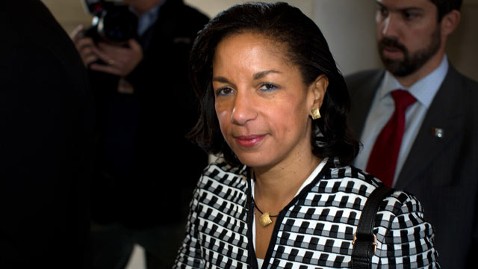White House Benghazi Emails Show Susan Rice Got a Bad Rap

Credit: Evan Vucci/AP Photo
ANALYSIS
If we learned anything in all the back and forth over the Benghazi talking points - the 12 revisions first reported by ABC News, the 100 pages of emails released by the White House, etc. - we learned this: Susan Rice got a bad rap.
First, some background:
Rice, the former U.S. ambassador to the United Nations who has now been tapped as President Obama's national security adviser, came under withering criticism after she famously appeared on five Sunday talk shows Sept. 16, 2012, and proclaimed the attack five days earlier on the U.S. diplomatic facility in Benghazi, Libya, grew out of a spontaneous protest inspired by the protests in Cairo over an anti-Muslim YouTube video.
That proved to be wrong. There were no protests in Benghazi. The incident started as an attack by a large group heavily armed men assaulting the compound.
READ MORE: Talking Points Changed at State Dept.'s Request
But Rice didn't invent the notion of spontaneous protest. And although she downplayed indications of an al Qaeda connection to the attack, that wasn't her idea, either. Rice was the White House's messenger on Benghazi, and although she was carrying a message that proved to be wrong, we know now that she herself had nothing to do with the crafting of that message.
It turns out that Rice's comments did come from the now-infamous CIA talking points and, while those talking points were heavily edited, the White House emails suggest Rice had no part in the editing process.
All 12 versions of the Benghazi talking points, including the first draft written entirely by the CIA, use the words "spontaneously inspired by the protests." That mistake belongs to the CIA.
The earlier versions of the talking points did include references to evidence that an al Qaeda affiliate, Ansar al-Sharia, took part in the attack. They also included references to earlier CIA warnings about the terrorist threat in Benghazi.
All of that was edited out. The emails released by the White House show that the deletions were made after State Department spokesman Victoria Nuland asked for those terrorist references to be removed.
But the first time Rice's name appears anywhere ion 100 page of emails is at 1:23 p.m. Sept. 15, nearly two hours after the final edits to the talking points were made. Indeed, that was the first email about the talking points that went to Rice's office. The last edits were made at 11:26 a.m.
In other words, you can blame the CIA for faulty intelligence on spontaneous protests. You can blame the State Department for insisting that references to terrorism be deleted. You can blame the White House for allowing those references to be deleted.